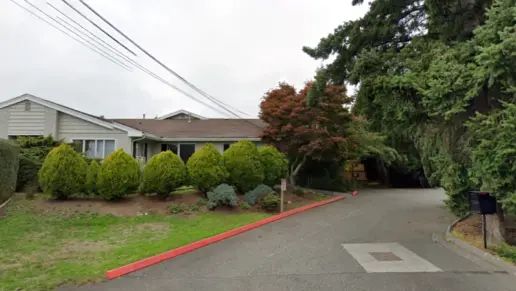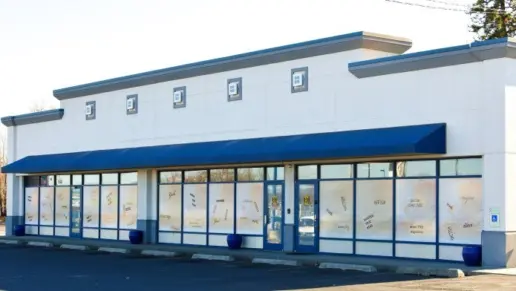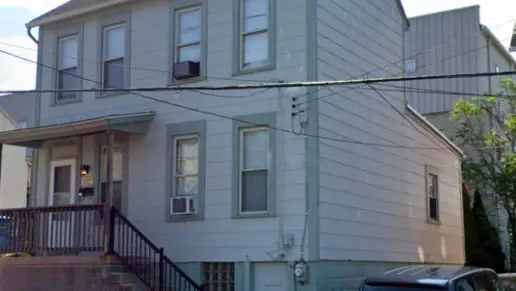This place is healing, it is a safe and peaceful place to focus on recovery. It is the warmest environment I have ever been in, the staff always treated me in a friendly way, they do everything possible to make patients feel welcome and loved from the first day they visit th ...
About Recovery Cafe
Located in Seattle, Washington, the Recovery Cafe offers a range of outpatient recovery support services. Here you’ll find resources, meetings, social services support, and meals for people in recovery from substance use disorder. Programming at the Recovery Cafe is designed to reduce relapse and help people maintain their recovery. Membership at the Recovery Cafe is free.
If you’d like to be a part of a healing recovery community then the Recovery Cafe invites you to become a member. Members must commit to being drug and alcohol free when in the cafe community, participate in a weekly recovery circle, and contribute to the cafe community. As a member you’ll enjoy free sit down meals, school for recovery classes, latte hours and recovery circles. You’ll also be connected to other recovery resources as necessary.
Recovery circles are small groups of six to 10 people who meet weekly for one hour to check in and share about their recovery journey. These circles are facilitated by volunteers and staff who have been trained as recovery coaches. If you can’t attend a recovery circle, you’re asked to call in and let them know ahead of time.
One thing I really like about the Recovery Cafe is its additional on-site amenities like a computer lab, board games, and coffee bar. You can also access HIV and Hep-C testing here. Twelve step meetings, SMART recovery meetings, and social events like open mic nights are held at this location.
People who’ve used Recovery Cafe’s services mention they felt welcome and appreciated the hot coffee and food. Others said this is a wonderful place with friendly people and staff.
Latest Reviews
Rehab Score
Gallery
Addiction Treatments
Levels of Care
Treatments
The goal of treatment for alcoholism is abstinence. Those with poor social support, poor motivation, or psychiatric disorders tend to relapse within a few years of treatment. For these people, success is measured by longer periods of abstinence, reduced use of alcohol, better health, and improved social functioning. Recovery and Maintenance are usually based on 12 step programs and AA meetings.
Effective drug rehab in Washington integrates care for the whole person, offering comprehensive solutions to addiction. Treatment methods address mental, physical, and relational aspects of substance abuse.
A combined mental health and substance abuse rehab has the staff and resources available to handle individuals with both mental health and substance abuse issues. It can be challenging to determine where a specific symptom stems from (a mental health issue or an issue related to substance abuse), so mental health and substance abuse professionals are helpful in detangling symptoms and keeping treatment on track.
Opioid rehabs specialize in supporting those recovering from opioid addiction. They treat those suffering from addiction to illegal opioids like heroin, as well as prescription drugs like oxycodone. These centers typically combine both physical as well as mental and emotional support to help stop addiction. Physical support often includes medical detox and subsequent medical support (including medication), and mental support includes in-depth therapy to address the underlying causes of addiction.
Programs



Clinical Services
Whether a marriage or other committed relationship, an intimate partnership is one of the most important aspects of a person's life. Drug and alcohol addiction affects both members of a couple in deep and meaningful ways, as does rehab and recovery. Couples therapy and other couples-focused treatment programs are significant parts of exploring triggers of addiction, as well as learning how to build healthy patterns to support ongoing sobriety.
Research clearly demonstrates that recovery is far more successful and sustainable when loved ones like family members participate in rehab and substance abuse treatment. Genetic factors may be at play when it comes to drug and alcohol addiction, as well as mental health issues. Family dynamics often play a critical role in addiction triggers, and if properly educated, family members can be a strong source of support when it comes to rehabilitation.
Group therapy is any therapeutic work that happens in a group (not one-on-one). There are a number of different group therapy modalities, including support groups, experiential therapy, psycho-education, and more. Group therapy involves treatment as well as processing interaction between group members.
In individual therapy, a patient meets one-on-one with a trained psychologist or counselor. Therapy is a pivotal part of effective substance abuse treatment, as it often covers root causes of addiction, including challenges faced by the patient in their social, family, and work/school life.
Life skills trainings involve all the skills a person must have in order to function successfully in the world. These include time management, career guidance, money management, and effective communication. Truly successful addiction recovery is based on the ability to not only live substance-free, but to thrive. Life skills teaches the practical necessities of functioning in society, which sets clients up for success in life, and therefore sobriety.
Contact Information
2022 Boren Avenue
Seattle, WA 98121


